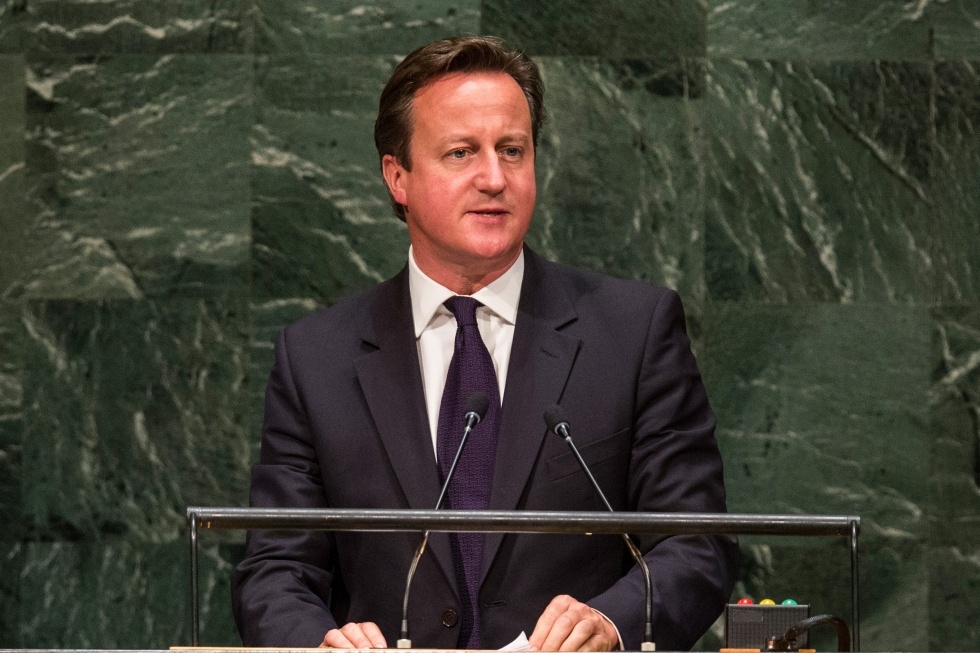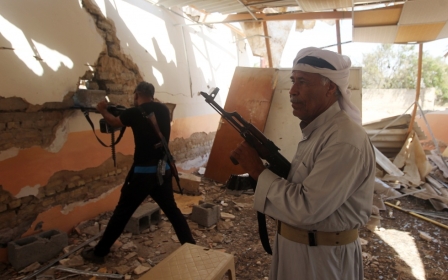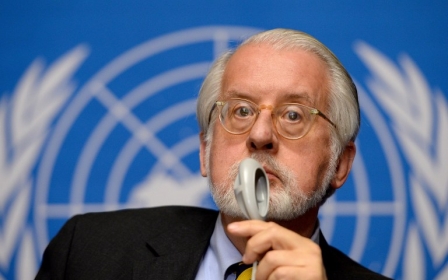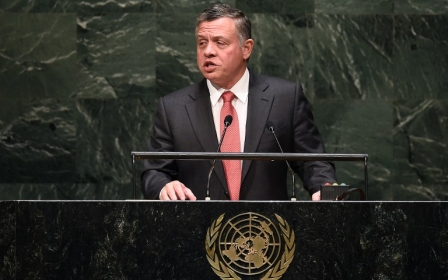Senior IS leaders killed, as UK parliament debates intervention

The UK parliament is to debate today whether or not to join military action in Iraq, as news comes in of the deaths of two Islamic State (IS) leaders in the governate of Kirkuk.
The vote in the House of Commons, the debate on which begins at 9:30am GMT and the vote due at 4:00pm, is expected to pass fairly smoothly and will confirm a decision agreed on unanimously in the UK cabinet to join the US and several Arab nations in carrying out airstrikes on IS militants.
IS have already been the targets of heavy bombing raids by the US and Arab countries including Saudi Arabia and Bahrain, with the latest bombing in Kirkuk coming in tandem with ground fighting between IS on one side and Kurdish Peshmerga and Shia militias on the other.
The deaths of Nime Nayef – IS-appointed ‘governer’ of the city - and military commander Abu Abed in airstrikes on the village of Bashir, 15km from central Kirkuk, is the latest blow to IS as they have reportedly begun a retreat from the city.
According to some recent polls the move to join the fighting in Iraq has both political and popular support in the UK, with an Opinium Research poll suggesting 60% of people supported some form of military action against IS.
A poll released by YouGov has also suggested a majority (57%) support airstrikes on IS in Iraq, with 51% also supporting strikes in Syria.
"We are facing an evil against which the whole world must unite. And, as ever in the cause of freedom, democracy and justice, Britain will play its part," British Prime Minister David Cameron told a United Nations summit in New York, before travelling home for the vote.
But the Prime Minister has crucially only proposed taking action in Iraq and has made no commitment to joining airstrikes against targets in Syria.
In September 2013, a UK proposal to attack Syrian government forces in Syria – anticipating a similar move by the US – was defeated in the House of Commons after a rebellion by backbench MPs and a last-minute decision by the opposition Labour party not to support the move.
Though this time round the fighting will be against the enemies of Bashar al-Assad, military action still raises the hairs on the back of necks of some politicians and the public, with the tumultuous invasion of Iraq in 2003 still fresh in the mind.
Michael Fallon, the UK Defence Secretary, has already hinted at a possibility of expanding the action into Syria, saying in an interview with The House magazine, that the UK “shouldn’t resile from direct military action if Isis is going to be defeated. This isn’t about containment. This is about the defeat of Isis” though he added that the situation in Syria was “different.”
The government, wary at being seen to be bypassing legal avenues, have published advice by the Attorney General Jeremy Wright, arguing that the Iraqi government’s request for assistance gives them a legal basis for intervention.
"The Government is satisfied that the consent of Iraq provides a clear and unequivocal legal basis for the deployment of UK forces and military assets to take military action to strike Isis sites and military strongholds in Iraq,” said the report.
"The UK will conduct military action in accordance with applicable international law, including international humanitarian law."
In spite of majority public support for the war, the Stop the War coalition staged a demonstration outside 10 Downing Street protesting the planned attacks on Iraq on Thursday.
Though in the run-up to the 2003 invasion numbers as high as 2 million were quoted for an anti-war demonstration in London organised by the group, last night’s protest was significantly smaller.
In an article on the group’s website, Chris Nineham, one of the organisers, listed ten reasons that British parliamentarians should vote against the war.
Among those he argued that “bombing raids will increase hatred of the west. One of the wider results of the 'War on Terror' has been to spread Al-Qaeda and other terrorist groups across whole regions of the world. In 2001 there were relatively small numbers of such militants, centred mainly on Pakistan. Now there are groups across the Middle East, central Asia and Africa.”
Peter Hain MP, who has shared platforms with the Stop the War coalition, wrote in the Guardian today advocating military action against IS.
“The icy cast-iron certainty of Isis’s fundamentalism has to be stopped, and like the US, Britain has military, surveillance and intelligence capabilities which those fighting on the frontline do not,” he wrote.
“In northern Iraq, only US air power – at the request of the Iraqi government, the Kurds and the minorities facing genocide, and crucially with the military participation of half-a-dozen nearby Arab countries – has knocked back Isis’s well-equipped army.”
Air strikes continue
Meanwhile, the US-led coalition in Iraq hit two provinces in Syria overnight, with the Syrian Observatory for Human Rights claiming Deir Ezzor and Hassakeh were struck.
Attacks on an IS command centre on the outskirts of Al-Mayadin were also reported.
In Deir Ezzor it is thought the strikes targeted oil facilities, including makeshift oil refineries operated by IS and other rebel groups.
According to the Observatory, strikes have killed at least 140 fighters and 13 civilians so far, though the US has yet to acknowledge any civilian casualties.
New MEE newsletter: Jerusalem Dispatch
Sign up to get the latest insights and analysis on Israel-Palestine, alongside Turkey Unpacked and other MEE newsletters
Middle East Eye delivers independent and unrivalled coverage and analysis of the Middle East, North Africa and beyond. To learn more about republishing this content and the associated fees, please fill out this form. More about MEE can be found here.




